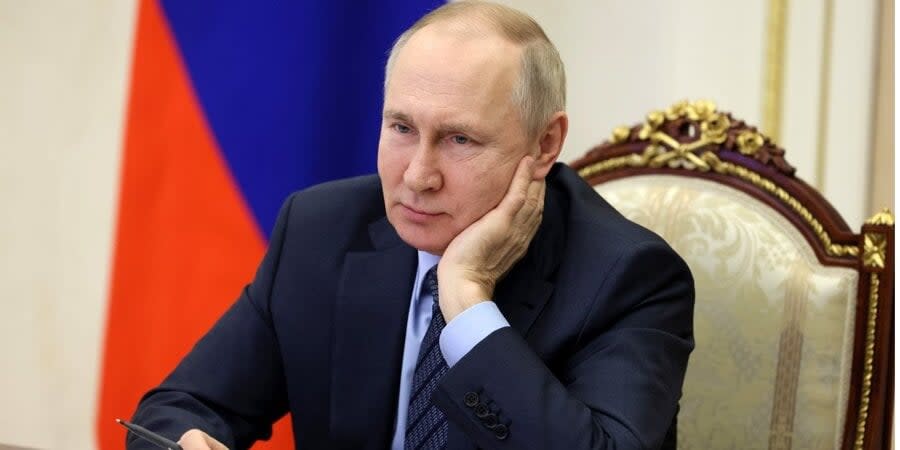Two options for the future: What awaits Russia is a dangerous scenario for Ukraine

The internal processes in Russia caused by military defeat and the impact of sanctions may lead to its partial or complete reformation, which will be accompanied by a fundamental change in the world’s attitudes towards it. Today, attitudes towards Russia are uneven. Even in the anti-Russian camp, there have recently been calls to prevent the country’s disintegration.
There are two diametrically opposed possibilities for the future of Russia:
Read also: This will force Russia to end the war
1. "Preventing the disintegration of Russia" — this means preserving the existing regime with some cosmetic changes in the state’s political system. Putin’s natural death, physical removal, or deprivation of power may have a rather symbolic meaning, but will not be a guarantee of Russia's renunciation of imperial encroachments. Because in a deep-seated way (caused by mental trauma), zombified Russian elites and society, having been pumped up by Kremlin propagandists with hatred for "fascist" Ukraine and the "decaying" West, have always preferred and still do prefer a "strong hand" policy, and external expansion a point of unspoken consensus among Russians with power.
Under such circumstances, the probability of a progressive political force coming to power (or staying in power for a long time) in Russia in the near future — a political force that is ready to promote the values of democracy, market economics, and respect for the sovereignty of other states — is near zero.
One “softer" scenario for deterring Russia's aggressiveness in the event of this contingency could be to force it (under the pressure of sanctions) to resume its participation in the Adapted Treaty on Conventional Armed Forces in Europe (ATTCFE), which Russia suspended its participation in during 2007, before the attack on Georgia. According to the Treaty, Russia is obliged to withdraw designated heavy weapons systems beyond the Urals and observe flanking restrictions on the number of troops and weapons it can maintain in Europe.
A “harder” scenario would involve forcing Russia (under the pressure of sanctions and the consequences of the defeat of its troops in Ukraine) to denuclearize and partially demilitarize. But under any of these scenarios, there are no guarantees that after "rising from its knees," Russia will not resort to an aggressive policy to restore its greatness, as happened with modern Russia after the collapse of the USSR.
Better a terrible end than endless horror
2. Reformatting the Russian Federation’s political and administrative system (decolonization), with the distribution of the country’s economic and military strength among new states and the controlled destruction of the nuclear arsenal. This scenario is very dangerous, as it would be accompanied by a clash of interests of separate groups within Russia, each of which will claim rightful authority.
The weakening or loss of centralized control over Russia’s power structures and their subordination to regional and individual political leaders could lead to armed conflicts, numerous victims, the economic decline of entire regions, and flows of refugees. But the "disease of imperialism" which has reached the stage of carrying out wars of aggression, as modern Russia has, can hardly be treated without "surgical" intervention.
Read also: Six dangerous illusions about Russia
However, the aggressor and terrorist state — both the government and the people who support it — deserve such treatment, and the amount of damage suffered by its victims (Georgia and Ukraine) requires appropriate punishment for the guilty. Moreover, given the threat of nuclear Armageddon which the Kremlin is attempting to wield against the whole world, the price of this solution is justified. As the saying goes: "Better a terrible end than endless horror."
Many experts insist that the disintegration of Russia is impossible due to the lack of objective conditions for it to happen. Yes, today these conditions are not completely met, but if Ukraine and the West aspire to a real, sustainable peace, then perhaps we should work towards creating these conditions?
Thus, existing hopes in certain political circles of some Western countries for the post-war democratic modernization of Russia and its integration into the European security system are groundless. This not only undermines Western political solidarity and limits assistance to Ukraine in curbing the international aggressor and terrorist, but also gives the Kremlin hope to avoid defeat, increases its sense of impunity, and encourages it to increase its aggressiveness.
Read also: Why Russia will not collapse following the example of the USSR?
For politicians who insist on a negotiated settlement to the war, it is appropriate to recall the words of Alexander Solzhenitsyn, which have become the motto and principle of anyone's relationship with the Russian state — "don't believe, don't fear, don't ask." Through negotiations it is probably possible to achieve temporary concessions from Russia on certain, non-critical issues in exchange for easing or canceling portions of sanctions. However, in fact, this will be an agreement to freeze the conflict, which will be ready to flare up again. Moreover, in Russia itself, this result will be presented as a capitulation by the West and will stimulate Russia — as a measure of replenishing its forces and resources - to renew their aggression.
The only justifiable subject of negotiations with Russia can be the conclusion of a legally binding document that establishes the results of its defeat: with the determination of the conditions of demarcation of borders, Russia's obligations to respect them and refrain from building up its military potential and aggression against its neighbors, and mechanisms for verifying compliance with their obligations and imposing costs for their violation.
Read the original article on The New Voice of Ukraine
